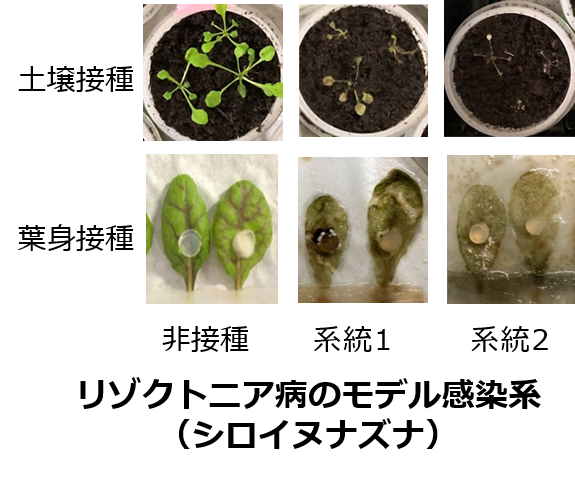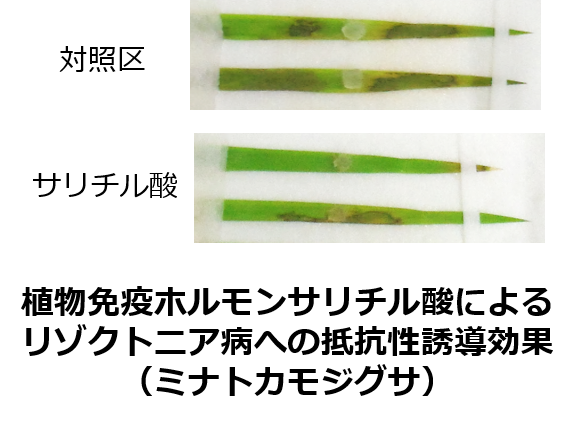Example
Research and development of plant disease control agents (Plant Activator) that contribute to sustainable agricultural production
Microbial disease outbreaks are inevitable in agriculture where single varieties are grown on a large scale. Plant diseases cause the loss of 6 to 4 billion people's food each year worldwide, with severe impacts on production and income. Fungicidal pesticides are essential to combat this plant disease. However, regulations on fungicide use are being tightened due to the depletion of control methods and the impact on environmental microorganisms caused by the development of antimicrobial resistant bacteria.
In contrast, "Plant Activator," which exert their control effects by activating plants' innate immunity, are being put to practical use in some cases. This contributes to sustainable agricultural production and social development because antimicrobial resistant bacteria do not emerge and the environmental impact is low. However, there are limited ways to explore new agents, and their application has not been expanded.
We have developed an original technique to quantitatively evaluate plant immune responses and have been searching for seeds of Plant Activator. One of the results is a small molecule plant activator that inhibits the enzyme that inactivates the plant hormone salicylic acid. The other is a cyclic peptide-type plant activator, organically synthesized using proprietary technology, which shows control of Rhizoctonia blight, which existing agents are ineffective against.
This technology will contribute to the eradication of hunger through increased food production, the development of sustainable agriculture, and the conservation of terrestrial ecosystems.
◎This initiative received the President Award for Excellence in the FY2021 Okayama University SDGs Promotion Award.
Please watch the video below to see the presentation of the activity.
Presentation of the FY2021 President Award for the Promotion of SDGs at Okayama University "Research and Development of Plant Disease Control Agents (Plant Activator) that Contribute to Sustainable Agricultural Production"


In contrast, "Plant Activator," which exert their control effects by activating plants' innate immunity, are being put to practical use in some cases. This contributes to sustainable agricultural production and social development because antimicrobial resistant bacteria do not emerge and the environmental impact is low. However, there are limited ways to explore new agents, and their application has not been expanded.
We have developed an original technique to quantitatively evaluate plant immune responses and have been searching for seeds of Plant Activator. One of the results is a small molecule plant activator that inhibits the enzyme that inactivates the plant hormone salicylic acid. The other is a cyclic peptide-type plant activator, organically synthesized using proprietary technology, which shows control of Rhizoctonia blight, which existing agents are ineffective against.
This technology will contribute to the eradication of hunger through increased food production, the development of sustainable agriculture, and the conservation of terrestrial ecosystems.
◎This initiative received the President Award for Excellence in the FY2021 Okayama University SDGs Promotion Award.
Please watch the video below to see the presentation of the activity.
Presentation of the FY2021 President Award for the Promotion of SDGs at Okayama University "Research and Development of Plant Disease Control Agents (Plant Activator) that Contribute to Sustainable Agricultural Production"


Representative
Noutoshi Plant Resistance Inducer Development Research Group
